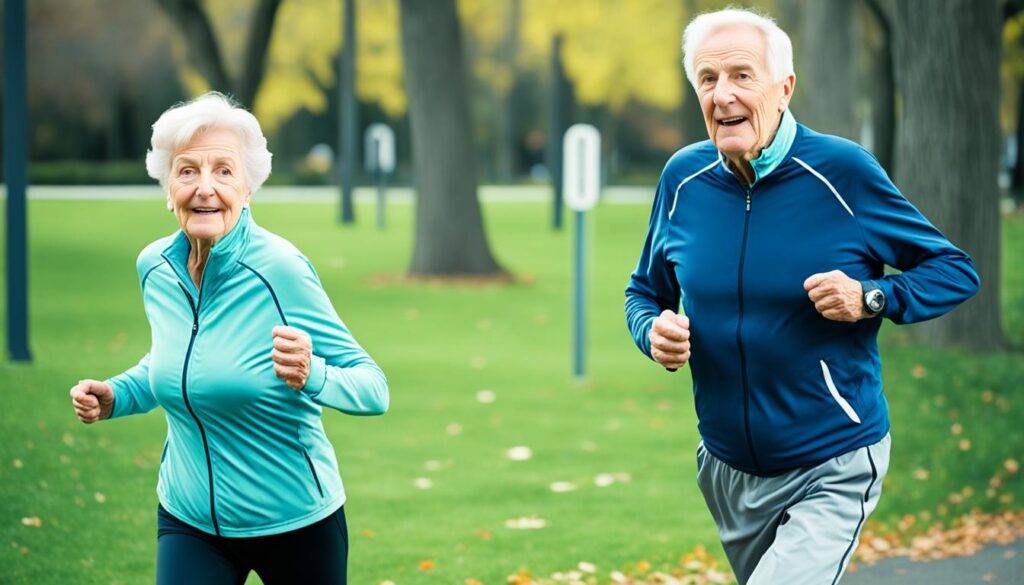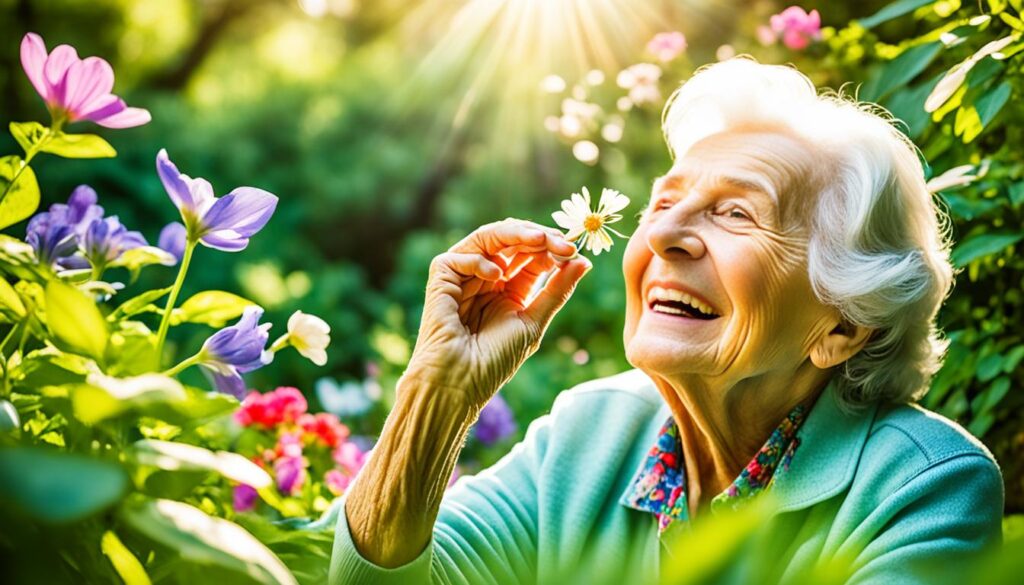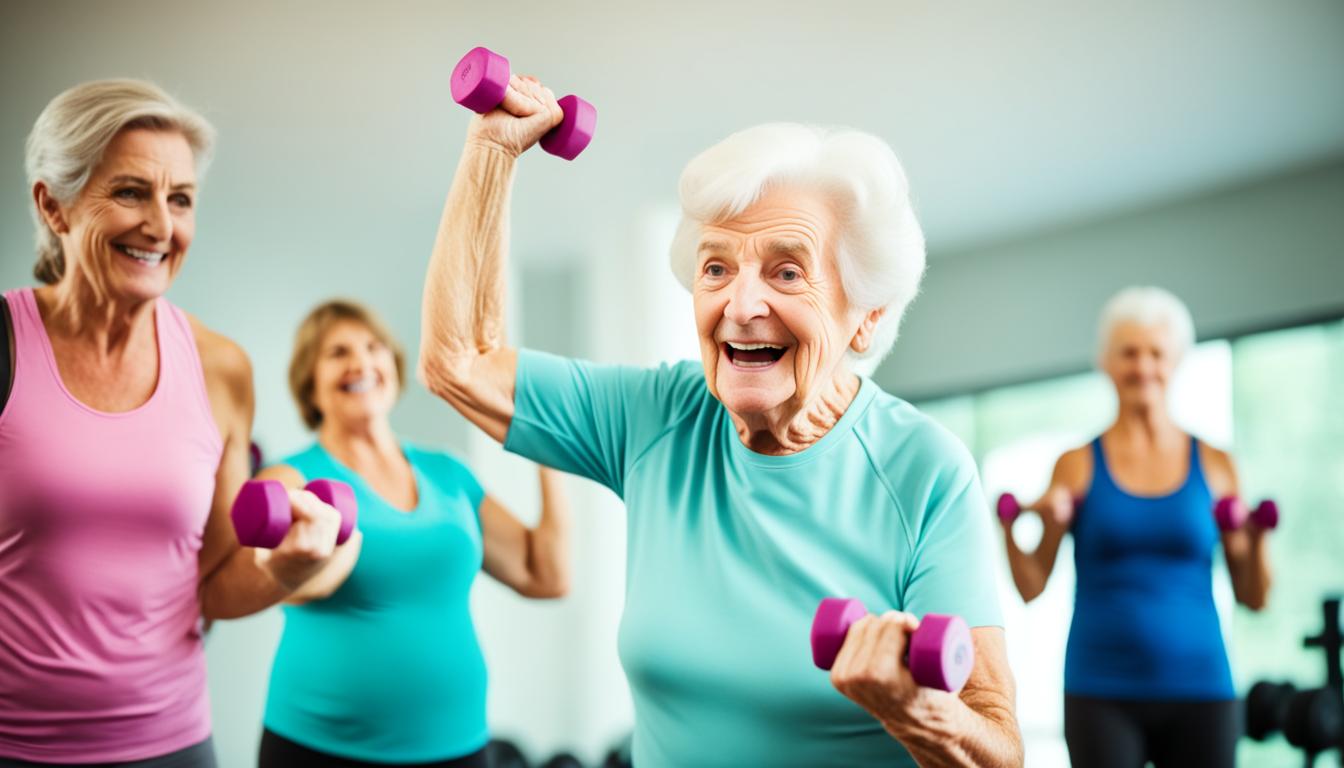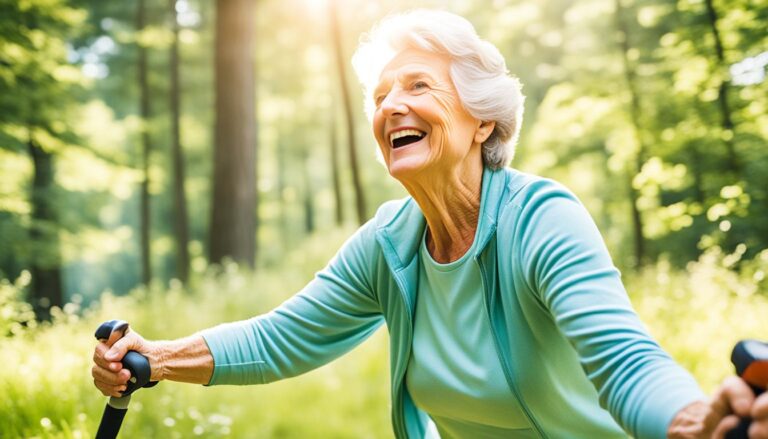Debunking Myths About Aging and Vitality FAQs
Have you ever felt that time is slipping away, leaving you anxious about the inevitable aging process? As I reflect on my own journey through life, I can’t help but empathize with the fears and uncertainties that surround the topic of aging. The myths and misconceptions about aging and vitality can often overshadow the truth, causing unnecessary worry and confusion.
But here’s the thing: aging isn’t something to fear. It’s a natural part of life, filled with new experiences and opportunities for growth. And while it’s true that our bodies change as we age, debunking the myths and misconceptions surrounding aging and vitality can empower us to embrace this incredible stage of life with confidence and grace.
Throughout this article, I invite you to join me on a journey of exploration. Together, we will unravel the truths hidden behind the myths, shedding light on what it really means to age and maintain vitality. So let’s dive in and debunk some of the most common myths about aging, shall we?
Key Takeaways
- Debunking myths about aging and vitality can empower us to embrace the aging process with confidence and grace.
- Understanding the truth behind common misconceptions surrounding aging and vitality is essential for maintaining a positive outlook on life.
- Age is just a number, and by challenging the myths about aging, we can lead fulfilling and vibrant lives as we grow older.
- By making informed choices and adopting healthy habits, we can age gracefully and maintain vitality throughout our lives.
- The journey of aging is an opportunity for personal growth, new experiences, and continued joy.
Understanding the Aging Process and its Myths
As we age, it is essential to have a clear understanding of the aging process. By dispelling common myths associated with aging, we can separate fact from fiction and make informed decisions about our health and well-being. Let’s explore some of the most prevalent aging myths and uncover the truth behind them.
Myth: Aging is solely responsible for a decline in physical and cognitive abilities.
Fact: While aging brings certain changes, it does not necessarily equate to a loss of vitality or mental sharpness. Scientific evidence suggests that adopting a healthy lifestyle can positively impact aging and maintain physical and cognitive function.
By engaging in regular exercise, eating a balanced diet, and engaging in mental stimulation, we can combat the effects of aging and promote overall wellness. It’s important to remember that age is not a barrier to living a fulfilling and active life.
To further illustrate the reality behind aging myths, let’s take a look at the following table that compares common misconceptions with the corresponding facts:
| Aging Myth | Aging Fact |
|---|---|
| Myth: Memory loss is unavoidable as we age. | Fact: While some changes in memory and cognition may occur, memory loss is not an inevitable consequence of aging. Adopting a brain-healthy lifestyle can help maintain cognitive function. |
| Myth: Physical exercise is not beneficial for older adults. | Fact: Exercise is crucial for maintaining physical health and functionality as we age. Regular physical activity can improve strength, flexibility, and overall well-being. |
| Myth: Aging leads to social isolation. | Fact: Social connections are essential for people of all ages. Building and maintaining meaningful relationships is crucial for emotional well-being, regardless of age. |
| Myth: Aging necessitates dependence on others. | Fact: Many older adults lead independent and fulfilling lives. By adopting a proactive approach to health and well-being, individuals can maintain their independence and autonomy. |
| Myth: Aging leads to decreased happiness. | Fact: Happiness is not determined solely by age. Positive emotions play a significant role in overall well-being, and adopting healthy habits can contribute to a fulfilling and joyful life, regardless of age. |
By dispelling these aging myths, we can embrace the aging process with confidence and take proactive steps towards healthy aging. It’s crucial to stay informed and empower ourselves with accurate knowledge as we navigate the journey of aging.
Myth #1: Aging Means Decline in Vitality
One of the most common misconceptions about aging is the belief that it inevitably leads to a decline in vitality. However, this couldn’t be further from the truth. While it’s true that our bodies undergo certain changes as we grow older, maintaining vitality and vigor is within our reach.
Contrary to popular belief, vitality isn’t solely determined by age. It is influenced by a combination of factors, including lifestyle choices and mindset. By making conscious decisions to prioritize our health and well-being, we can age gracefully and continue to enjoy a vibrant and energetic life.
To debunk the myth and shed light on vitality truths, let’s explore some key ways in which we can defy the misconceptions and embrace vitality as we age:
- Engage in regular physical activity: Exercise plays a crucial role in maintaining vitality. It keeps our body strong, improves muscle tone, and enhances overall well-being. Incorporating activities such as walking, yoga, or swimming into our daily routines can have a profound impact on our vitality.
- Adopt a nutritious diet: Eating a balanced and wholesome diet is essential for vitality. Consuming a variety of fruits, vegetables, lean proteins, and whole grains provides essential nutrients that fuel our bodies and support optimal function.
- Prioritize sleep: Restorative sleep is vital for both physical and mental well-being. A good night’s sleep allows our body to recharge and repair, promoting vitality and overall health.
- Cultivate a positive mindset: Our mindset plays a significant role in maintaining vitality. Embracing a positive outlook, practicing gratitude, and engaging in activities that bring joy and fulfillment can greatly contribute to our overall well-being.
By incorporating these vitality truths into our lives, we can age gracefully and defy misconceptions about vitality and aging. Remember, vitality is not determined by a number but by the choices we make and the lifestyle we lead.

Myth #2: Memory Loss is Inevitable with Aging
Contrary to popular belief, memory loss is not an inevitable consequence of aging. While it is true that some cognitive changes may occur as we grow older, they do not necessarily lead to significant memory decline. In fact, research has shown that the brain has a remarkable ability to adapt and form new neural connections throughout our lives, known as neuroplasticity.
By adopting certain strategies and incorporating healthy habits into our lifestyle, we can improve and maintain cognitive function as we age. Here are some myth-busting tips to keep your memory sharp:
- Stay mentally active: Engage in activities that challenge your brain, such as puzzles, reading, or learning a new skill. This stimulates neural pathways and helps preserve cognitive function.
- Exercise regularly: Physical activity has been linked to improved brain health and memory. Aim for at least 30 minutes of moderate-intensity exercise most days of the week.
- Get quality sleep: Sleep plays a crucial role in memory consolidation. Prioritize good sleep hygiene, establish a bedtime routine, and create a comfortable sleep environment.
- Eat a brain-healthy diet: Consume a diet rich in fruits, vegetables, whole grains, lean proteins, and healthy fats. Avoid excessive sugar and processed foods, which can have a negative impact on brain health.
- Manage stress: Chronic stress can impair memory and cognitive function. Practice stress management techniques such as meditation, deep breathing exercises, or engaging in hobbies you enjoy.
Remember, taking proactive steps to support your brain health and implementing these healthy aging tips can significantly contribute to maintaining a sharp memory as you age. Embrace the potential for growth and change, and witness the remarkable resilience of your brain.
In the words of the renowned neurologist Dr. Majid Fotuhi, “The brain is like a muscle. The more you use it, the stronger it gets.”

Myth #3: Physical Exercise is Not Beneficial for Older Adults
Contrary to popular belief, physical exercise is highly beneficial for older adults. Regular exercise plays a crucial role in maintaining overall health and well-being as we age. It not only helps to keep our bodies strong and flexible but also provides numerous mental and emotional benefits.
Engaging in physical activity on a regular basis can help older adults:
- Improve cardiovascular health – Exercise strengthens the heart and improves blood circulation, reducing the risk of heart disease and stroke.
- Enhance bone density – Weight-bearing exercises such as walking, jogging, or weightlifting help to prevent osteoporosis and maintain strong bones.
- Maintain muscle strength – Strength training exercises preserve muscle mass, which is crucial for balance, stability, and preventing falls.
- Manage weight – Regular physical activity helps to maintain a healthy weight, reducing the risk of obesity and associated health conditions.
- Boost mood and reduce stress – Exercise releases endorphins, the body’s natural feel-good hormones, promoting a sense of well-being and reducing stress and anxiety.
- Improve cognitive function – Research suggests that exercise can improve memory, attention, and overall cognitive function in older adults.
To incorporate physical activity into your daily routine, consider the following tips:
- Choose activities you enjoy – Whether it’s walking, swimming, dancing, or gardening, find activities that you find enjoyable and are more likely to stick with.
- Start slow and gradually increase intensity – Begin with low-intensity exercises and gradually build up your endurance and intensity level over time.
- Stay consistent – Aim for at least 150 minutes of moderate-intensity aerobic activity per week, accompanied by strength training exercises two or more days a week.
- Listen to your body – Pay attention to any discomfort or pain during exercise. If something doesn’t feel right, consult with your healthcare provider.
- Include variety – Incorporate a mix of cardiovascular exercises, strength training, balance exercises, and flexibility exercises to reap the benefits of a well-rounded fitness routine.

Myth #4: Aging Means Social Isolation
Contrary to popular belief, aging does not have to mean social isolation. Maintaining strong social connections is vital for our well-being as we age. Studies have shown that staying socially engaged can reduce the risk of cognitive decline, improve mental health, and even increase longevity.
Building and maintaining meaningful relationships can be achieved through various activities and strategies. Here are some healthy aging tips to dispel the myth of social isolation:
- Stay connected with family and friends: Regularly reaching out to loved ones, whether through phone calls, video chats, or in-person visits, can help foster a sense of connection and belonging.
- Join community groups or organizations: Engaging in activities with like-minded individuals who share similar interests can provide opportunities for social interactions and the formation of new friendships.
- Volunteer or participate in local events: Contributing to your community not only benefits others but also allows you to meet new people and expand your social network.
- Take part in group activities: Joining clubs, classes, or hobby groups can provide a sense of belonging and the chance to meet people with similar passions.
Remember, social isolation is not an inevitable part of aging. By actively seeking and nurturing relationships, we can maintain a fulfilling social life and promote overall well-being.

Caption: Enjoying social activities with friends is one way to dispel the myth of social isolation and promote healthy aging.
Myth #5: Aging Must Involve Dependence on Others
Contrary to popular belief, aging does not automatically equate to dependence on others. It is a common myth that as we grow older, we lose our independence and become reliant on external support. However, there are numerous ways to promote independence and self-sufficiency while aging gracefully.
One key strategy for maintaining independence is to prioritize a healthy lifestyle. By adopting a balanced diet, staying physically active, and prioritizing mental well-being, we can enhance our overall vitality and reduce the risk of age-related health issues. Remember, it’s never too late to make positive changes and prioritize your well-being.
“Aging is not ‘lost youth’ but a new stage of opportunity and strength.”
– Betty Friedan
Another essential aspect of maintaining independence as we age is staying engaged in social activities and nurturing meaningful relationships. Building a strong support network of friends, family, and like-minded individuals can provide the emotional and practical support needed to navigate the challenges that may come with aging.
Additionally, technology can play a significant role in promoting independence. From virtual doctor appointments to online banking and shopping, technological advancements have made many aspects of daily life more accessible for older adults. Embracing the digital world can empower individuals to remain self-sufficient and connected.
Ultimately, it’s important to debunk the myth that aging inevitably leads to dependence. By following healthy aging tips, staying socially active, and embracing technology, we can age gracefully and maintain our independence, ensuring a fulfilling and empowered aging experience.
Myth #6: Aging Leads to Decreased Happiness
I’m here to debunk the myth that aging leads to decreased happiness. Contrary to popular belief, getting older doesn’t have to mean a decline in joy and fulfillment. In fact, there are numerous factors that contribute to overall well-being as we age, and with the right mindset and lifestyle choices, we can embrace the journey of aging with happiness and contentment.
Finding Meaning and Purpose
One key aspect of maintaining happiness as we age is finding meaning and purpose in our lives. Retirement doesn’t have to be the end of our contributions; it can be a new beginning. Engaging in activities that bring us fulfillment, such as volunteering, pursuing hobbies, or starting a new career path, can bring a renewed sense of purpose and happiness.
Maintaining Social Connections
Human connection is essential for our well-being at any age. As we grow older, it’s important to nurture and maintain social relationships. Whether it’s spending time with family, reconnecting with old friends, or joining community groups, staying socially engaged can combat feelings of loneliness and enhance our overall happiness.
Embracing Self-Care
Self-care becomes even more crucial as we age. Taking care of our physical and mental well-being can significantly impact our happiness. Engaging in regular exercise, eating a balanced diet, getting enough sleep, and practicing mindfulness are all essential for healthy aging and promoting a positive outlook.
| Healthy Aging Tips for Increased Happiness |
|---|
| Stay socially active and maintain relationships |
| Pursue hobbies and activities that bring joy |
| Practice self-care and prioritize physical and mental health |
| Adopt a positive mindset and focus on gratitude |
| Seek support from friends, family, or therapists if needed |
Adopting a Positive Mindset
The way we perceive aging plays a significant role in our happiness. Embracing a positive mindset and challenging negative beliefs about getting older can greatly influence our overall well-being. Cultivating gratitude, practicing forgiveness, and focusing on the present moment are all powerful tools for maintaining a positive outlook on life.
“Happiness is not something ready-made. It comes from your actions.” – Dalai Lama
Remember, happiness is not solely determined by age. By embracing healthy aging tips and debunking the misconception that aging leads to decreased happiness, we can age gracefully and live fulfilling lives, filled with joy and gratitude.

Conclusion
In conclusion, we have debunked common myths about aging and vitality, providing valuable insights and practical tips for aging gracefully. It is important to remember that age is just a number, and with the right mindset and lifestyle choices, we can embrace the journey of aging with vitality and joy.
Throughout this article, we have addressed misconceptions such as the decline in vitality with age, inevitable memory loss, the supposed lack of benefits of physical exercise for older adults, social isolation, dependence on others, and decreased happiness. By uncovering the truth behind these myths, we have highlighted the possibilities for leading fulfilling lives as we grow older.
It is crucial to maintain a healthy lifestyle, prioritize self-care, engage in regular physical activity, foster social connections, and nurture a positive outlook to age gracefully. With these practices, we can preserve cognitive function, maintain our independence, and find happiness and fulfillment in every stage of life.
FAQ
What are some common myths about aging and vitality?
There are several common myths about aging and vitality, including the belief that aging always leads to a decline in vitality, memory loss is inevitable, physical exercise is not beneficial for older adults, aging leads to social isolation, aging necessitates dependence on others, and aging leads to decreased happiness. In this article, we will debunk these myths and provide you with accurate information and practical tips for healthy aging.
Why is it important to understand the aging process and dispel myths?
Understanding the aging process and dispelling myths is essential because it enables us to make informed decisions about our health and well-being as we age. By separating fact from fiction, we can adopt healthy habits, maintain vitality, and age gracefully.
Is it true that aging naturally leads to a decline in vitality?
No, it is not. While aging is a natural process, there are numerous factors that can contribute to vitality even as we grow older. By maintaining a healthy lifestyle, including regular exercise, a nutritious diet, and prioritizing self-care, we can promote vitality and well-being throughout the aging process.
Can memory loss be prevented or improved as we age?
Absolutely. While it is true that some memory changes and mild forgetfulness can occur as we age, significant memory loss is not an inevitable consequence of aging. Engaging in mentally stimulating activities, staying physically active, managing stress, getting enough sleep, and maintaining strong social connections are all important for promoting cognitive health and maintaining memory function as we age.
Is physical exercise beneficial for older adults?
Yes, physical exercise is incredibly important for older adults. Regular exercise helps maintain muscle strength, balance, flexibility, and cardiovascular health. It can improve overall physical function, lower the risk of chronic illnesses, and improve mental well-being. It is never too late to start incorporating physical activity into your routine, and there are various options available to suit different fitness levels and preferences.
Does aging necessarily lead to social isolation?
No, aging does not automatically lead to social isolation. While there can be challenges in maintaining social connections as we age, it is crucial to prioritize and nurture relationships. Actively participating in community activities, joining social groups or clubs, volunteering, and staying connected with friends and family can help combat social isolation and promote overall well-being.
Can aging be empowering and independent?
Absolutely. Aging can be a time of self-discovery, growth, and empowerment. With the right mindset and lifestyle choices, it is possible to promote independence and self-sufficiency as we age. Utilizing support services, maintaining a healthy lifestyle, staying mentally and socially engaged, and embracing new experiences can all contribute to a fulfilling and empowered aging experience.
Does aging necessarily lead to decreased happiness?
No, aging does not automatically lead to decreased happiness. Happiness is a subjective experience that can be influenced by various factors, including mindset, social connections, physical health, and purposeful engagement. By cultivating a positive outlook, maintaining social connections, pursuing hobbies and interests, and taking care of physical and mental health, it is possible to find joy and contentment throughout the aging process.







